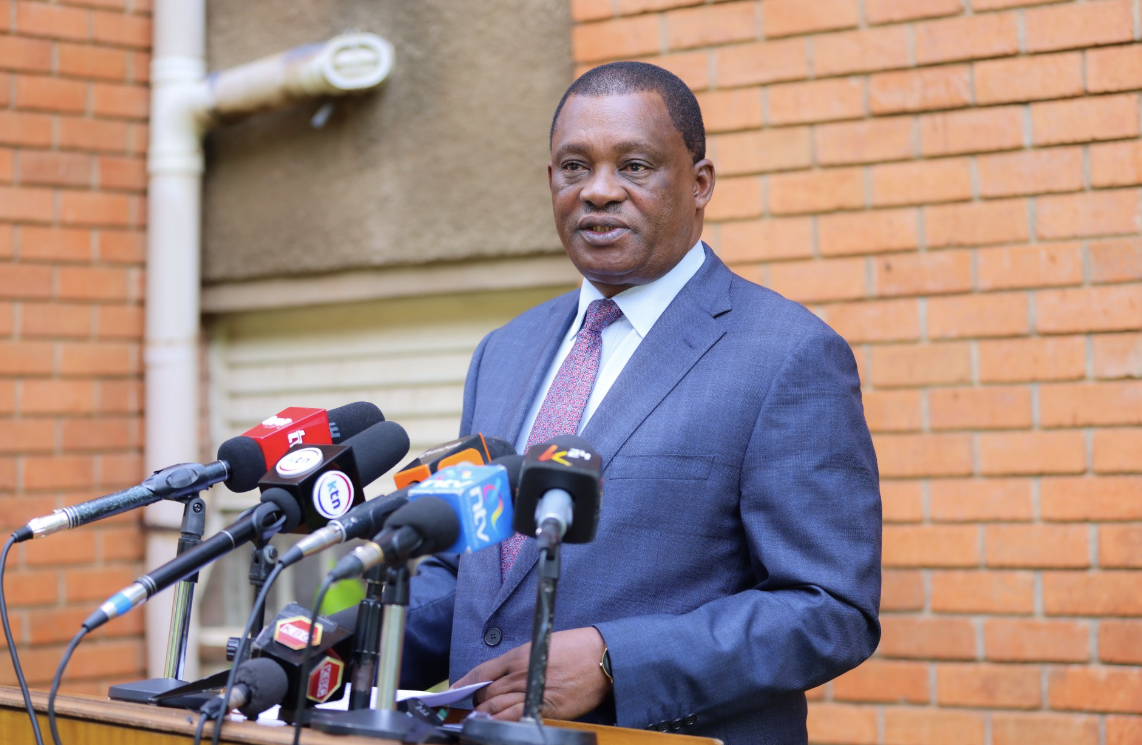
 Former Public Service Cabinet Secretary Justin Muturi. /JUSTIN MUTURI/X
Former Public Service Cabinet Secretary Justin Muturi. /JUSTIN MUTURI/XFormer Public Service Cabinet Secretary Justin Muturi has sharply criticised President William Ruto’s newly established panel tasked with designing compensation modalities for victims of protest violence.
In a strongly worded statement, Muturi described the 18-member team, which was sworn in on Thursday at the Kenyatta International Convention Centre (KICC), as “a mockery of justice” and little more than a political cover.
The panel has 120 days to deliver on its mandate and is expected to issue periodic reports to President Ruto.
Muturi dismissed the team as lacking legal and constitutional grounding.
“At its core, the panel is not anchored in law, has no constitutional authority, and lacks a funding framework. It is, therefore, not just inadequate. It is a deliberate distraction from the real path to justice,” he said.
He argued that Kenya’s past is filled with commissions and task forces that failed to achieve meaningful justice despite being legally established and supported by international partners.
He cited the Truth, Justice and Reconciliation Commission (TJRC), which, according to him, spent billions collecting testimonies of victims, only for its report to remain shelved in Parliament.
Muturi also pointed to the Waki Commission on the 2007/08 post-election violence, whose recommendations, he noted, remain largely unimplemented.
“Or the Krigler Commission, which investigated electoral failures and made strong proposals, most of which remain unaddressed,” he added.
“How, then, can anyone expect a presidential panel without a legal foundation, budget, or independence to succeed?” he posed.
Muturi stressed that the responsibility for justice lies with the courts, not presidential appointees.
He said it is the courts that have the mandate to establish responsibility, hold perpetrators accountable, and award compensation to victims.
By creating a parallel structure under the control of the Executive — which Muturi suggested had previously faced concerns in relation to violence — the president has assumed judicial powers that are not his to exercise,” he claimed.
He also questioned how the panel would manage compensation without a budgetary process approved by Parliament.
He said compensation is not mere rhetoric but a financial undertaking that requires parliamentary allocation and transparent implementation.
“Without a legal framework, any compensation scheme will amount to arbitrary payments. If they happen at all. And arbitrary payments risk degenerating into yet another patronage tool: selective generosity for some victims, silence and neglect for others.”
According to Muturi, having a presidential panel examine violence attributed to state action is inherently flawed.
“To now ask a panel appointed by the same presidency to investigate and compensate victims is a mockery of justice. It is akin to allowing one party to act as both judge and defendant,” he said.
He referred to the principle of nemo judex in causa sua—that no one should be a judge in their own case—arguing it is not mere legal jargon but a foundation of fairness.
Muturi concluded by suggesting that the initiative was more about political considerations than justice.
This panel, he argued, is less about victims and more about shaping political optics ahead of 2027.














